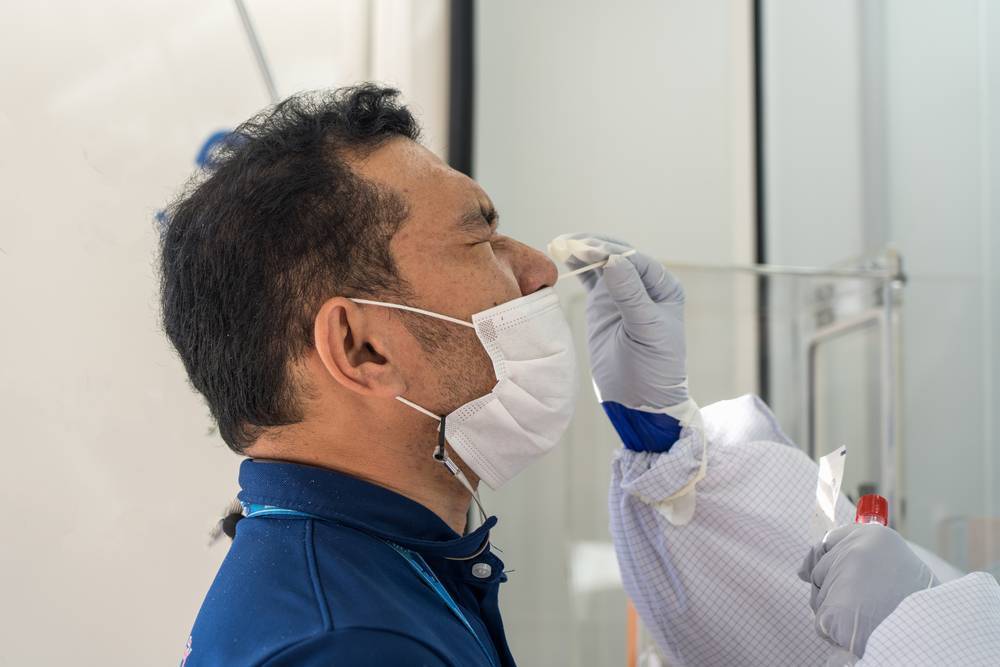Nasopharyngeal cancer is a rare type of cancer that affects the nasopharynx, the upper part of the throat behind the nose.
According to the World Health Organization (WHO), nasopharyngeal cancer is most common in Southern China, Hong Kong, Vietnam, and Malaysia. For these regions, the incidence rate is around 25 to 50 cases per 100,000 people per year. In Malaysia, for example, it is the fourth most common form of cancer. In this article, we will explore the causes, symptoms, diagnosis, and treatment options for nasopharyngeal cancer.
Causes
The exact cause of nasopharyngeal cancer is unknown, but certain risk factors increase the likelihood of developing the disease. These risk factors include:
- Epstein-Barr virus (EBV) infection: People with a history of EBV infection are at higher risk of developing nasopharyngeal cancer.
- Family history: People with a family history of nasopharyngeal cancer have a higher risk of developing the disease.
- Diet: A diet high in salt-cured fish and meat may increase the risk of nasopharyngeal cancer.
- Smoking and alcohol consumption: These habits increase the risk of many types of cancer, including nasopharyngeal cancer.
Symptoms
The early symptoms of nasopharyngeal cancer are often subtle and may be mistaken for other conditions. However, as the cancer progresses, the symptoms become more noticeable and may include:
- A lump in the neck
- Nasal congestion or stuffiness
- Difficulty hearing or ringing in the ears
- Blood-streaked phlegm
- Headaches
- Double vision or other vision problems
- Facial numbness or pain
- Difficulty speaking or swallowing
Diagnosis
If a doctor suspects nasopharyngeal cancer, they will perform a physical exam and may order several tests, including:
- Nasopharyngoscopy: A thin, flexible tube with a camera is inserted through the nose to examine the nasopharynx.
- Biopsy: A sample of tissue is removed from the nasopharynx and examined under a microscope to determine if it is cancerous.
- Imaging tests: CT scans, MRI, and PET scans may be used to determine the size and location of the tumor.
Treatment
The treatment of nasopharyngeal cancer depends on the stage of the disease, the size and location of the tumor, and the patient’s overall health. Treatment options include:
- Radiation therapy: High-energy radiation is used to kill cancer cells.
- Chemotherapy: Powerful drugs are used to kill cancer cells.
- Surgery: In some cases, surgery may be necessary to remove the tumor.
- Targeted therapy: Medications are used to block specific proteins that promote the growth of cancer cells.
Prognosis
The prognosis for nasopharyngeal cancer depends on the stage of the disease at the time of diagnosis. Early-stage nasopharyngeal cancer has a better prognosis than advanced-stage cancer. The overall 5-year survival rate for nasopharyngeal cancer is about 70%, but this varies based on the stage of the disease.
Prevention
While there is no sure way to prevent nasopharyngeal cancer, certain lifestyle changes may reduce the risk of developing the disease. These include:
- Reducing the intake of salt-cured fish and meat
- Quitting smoking and limiting alcohol consumption
- Practicing good hygiene to avoid EBV infection
In conclusion, nasopharyngeal cancer is a rare type of cancer that affects the nasopharynx. While the exact cause of the disease is unknown, certain risk factors increase the likelihood of developing it. Therefore, early detection and treatment can improve the prognosis for patients with nasopharyngeal cancer.

